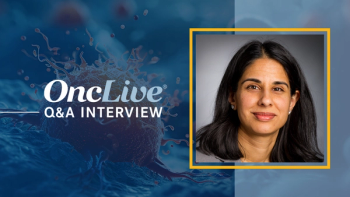
Dr McCann on the Ongoing Development of Tailored Treatment Regimens in HER2+ Breast Cancer

Kelly E. McCann, MD, PhD, discusses several targeted approaches under investigation in HER2-positive breast cancer.
"There are a number of other ADCs that have different payloads, which is something that we need to focus on right now. Currently, T-DXd and sacituzumab govitecan are both topoisomerase 1 inhibitors, so it would be great to have other types of payloads for our ADC technology. ADCs seem to be better than chemotherapies in a lot of ways."
Kelly E. McCann, MD, PhD, an assistant professor and breast medical oncologist at UCLA Health David Geffen School of Medicine, discusses ongoing efforts to develop more tailored treatment approaches for patients with HER2-positive breast cancer.
Several novel antibodies targeting HER2 are under investigation, including bispecific antibodies that engage the same antigens as trastuzumab (Herceptin) and pertuzumab (Perjeta), McCann begins. Additionally, advancements with antibody-drug conjugates (ADCs) have sparked the emergence of agents with distinct payloads, an area of increasing clinical interest, she says. Fam-trastuzumab deruxtecan-nxki (Enhertu) and sacituzumab govitecan-hziy (Trodelvy), which are both standard-of-care regimens in select breast cancer settings, utilize topoisomerase 1 inhibitors as cytotoxic payloads, McCann details. However, expanding the repertoire of ADC payloads remains a key objective of breast cancer research that could potentially enhance efficacy and mitigate resistance, she reiterates.
ADCs offer several advantages over conventional chemotherapy, McCann continues. By directly delivering cytotoxic agents to tumor cells, ADCs increase drug concentration at the target site and limit systemic toxicity, she explains. Furthermore, these agents typically exhibit prolonged half-lives, allowing for sustained therapeutic activity compared with standard chemotherapy, she adds.
In the context of breast cancer, topoisomerase 1 inhibitors are not typically utilized in curative treatment settings, McCann notes. Consequently, sequencing therapies for patients receiving multiple lines of treatment requires careful consideration of prior drug exposure to minimize cross-resistance, she says. Expanding the diversity of ADC payloads beyond topoisomerase I inhibitors may provide additional treatment options across HER2-expressing breast cancers, McCann concludes.



































